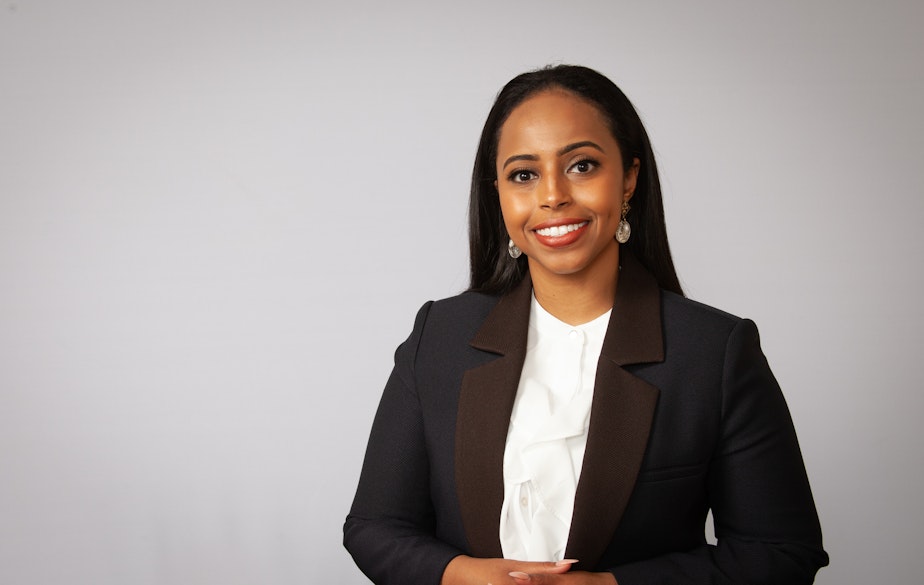What can Seattle expect from its new director of Immigrant and Refugee Affairs?

Last week Seattle Mayor Bruce Harrell announced that Seattle Port Commissioner Hamdi Mohamed would be joining his administration as Director of the Office of Immigrant and Refugee Affairs.
What does she hope to do in that position?
Hamdi Mohamed is not new to working in refugee and immigrant policy. But she says her new position as Director of Seattle's Office of Immigrant and Refugee Affairs is exciting.
"It gives me goosebumps to have this opportunity to lead that office and improve the lives of immigrants and refugee residents and workers in the city of Seattle, and in King County."
Mohamed was elected as a Port of Seattle commissioner in 2021, and took office in January. She'll be keeping the position, working two jobs, as most port commissioners do.
She says a big part of her new role will be making sure the region is in sync.
"There is a lot that that can be done at the city and county levels, to ensure that immigrants and refugees are being protected. We have to make sure that our local governments are coordinating with each other really well. To make sure that those services are reaching our communities."
Sponsored
Mohamed noted there is lots of room for improvement when it comes to regional coordination. And she's excited to step into the task.
Jorge Barón, executive director of the Northwest Immigrant Right Project, agrees that more local coordination is needed.
"I think one of the things that we've seen over the last few years has been that there's been renewed interest and recognition of the role that local jurisdictions can play in trying to remove some of the obstacles that often make it more difficult for immigrant refugee community members to be able to access opportunities and jobs and the things that they need to be able to lead a thriving live."
Especially, Barón says, when the federal government is not stepping in to assist. Such as providing legal representation to asylum seekers and undocumented immigrants.
"That's an example of where, in some cases, local jurisdictions will have to step in. To provide support in areas where unfortunately the federal government is not doing what it should do."





